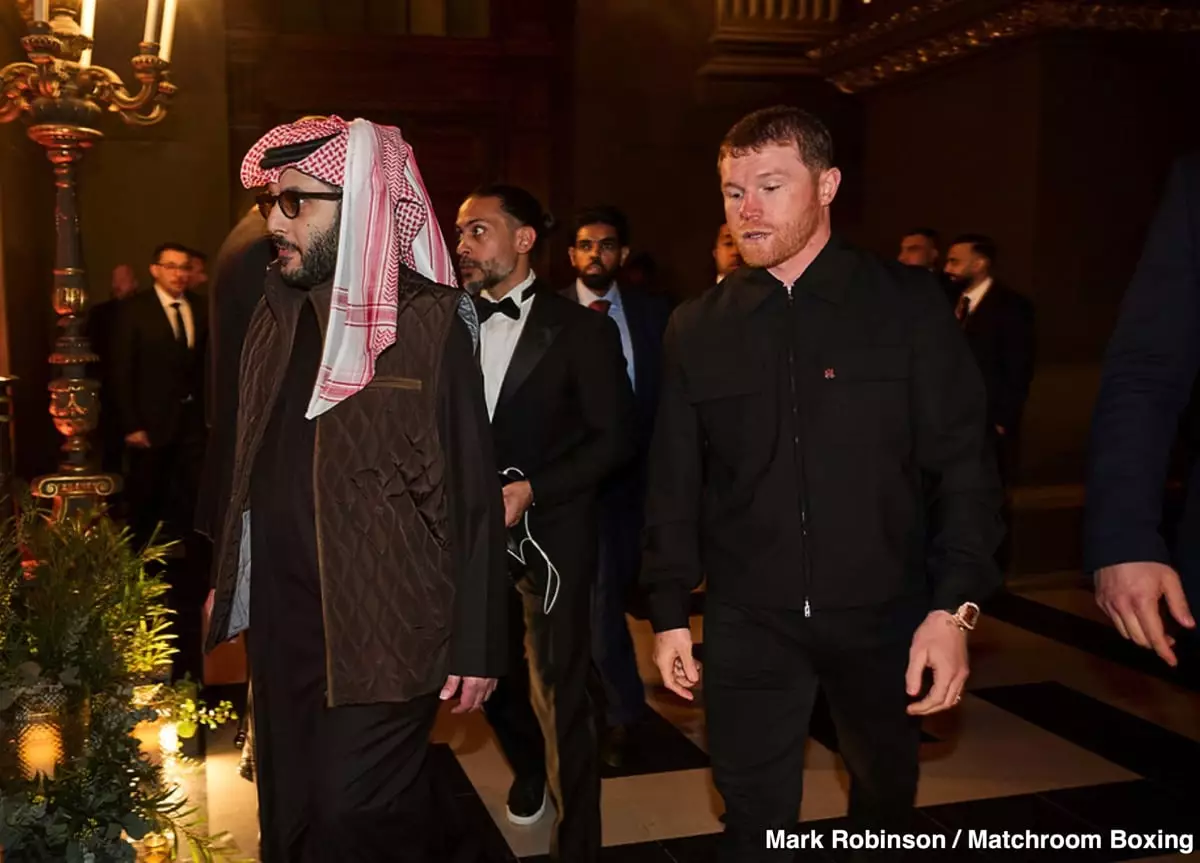Canelo Alvarez, the undisputed super middleweight champion, stands on the precipice of an extraordinary financial milestone. With an estimated net worth already hovering around $200 to $300 million, Mikey Garcia boldly predicts that Alvarez could soon double this figure, potentially reaching an astronomical $400 million. As Alvarez prepares to face William Scull in Riyadh on May 3rd and later Terence Crawford in September, the stakes transcend mere titles. This is a calculated move into the lucrative realm of boxing, where wealth has become a more significant motivator than the accolades once held dear.
This financial shift reflects a broader trend in modern boxing where fighters increasingly value monetary rewards over traditional accolades. Canelo, with a professional record of 62-2-2 and a history of championship success, appears less concerned with securing additional belts and more focused on lucrative contracts that promise generational wealth. As he gears up for his Riyadh match and prepares for the potentially high-stakes showdown with Crawford, it’s vital to understand what this shift signifies for Alvarez and the sport itself.
The Rise of Monetary Motivation
Garcia’s assertion that Canelo is fighting not for honor but purely for money encapsulates a paradigm shift in boxing. The traditional narrative often revolved around the glory of championship titles and the prestige associated with being a champion. For Canelo, however, the landscape has changed. The allure of financial security for himself and his descendants has taken precedence. With substantial payouts expected from high-profile fights in Saudi Arabia, Alvarez has evidently recalibrated his priorities.
It poses an interesting question: Is this a prudent approach for athletes in combat sports? By prioritizing wealth accumulation, Alvarez exemplifies a business-savvy athlete aware of the volatility in boxing. A champion today could face a daunting challenge tomorrow, making it imperative to secure financial futures while the market is hot. This perspective could resonate with future generations of fighters who find themselves navigating an industry increasingly shaped by economics and viewer interest rather than honor and prestige.
The Saudi Arabian Influence
The Saudi investment in sports, particularly boxing, represents a significant shift and underlines the growing financial clout of the region. As Alvarez steps into the ring against Scull, the Saudis eagerly await a potential undisputed championship on the line for their promotional jackpot against Crawford. This move not only highlights the business of boxing but raises questions about the ethical implications of financial incentives driving outcomes.
Achieving the undisputed status against fighters like Dmitry Bivol, Artur Beterbiev, or David Benavidez could indeed set a path towards major financial gains – but at what cost? As fighters seek wealth, the sport might shift from a test of athletic prowess to a high-stakes gamble where financial returns overshadow genuine competition. Canelo’s calculated moves in agreement with Saudi investors imply a new form of relationship where both athletes and promoters negotiate competitive boundaries strictly confined to fiscal gain.
Crawford: The Anticipated Challenge
In the upcoming September face-off against Terence Crawford, fans and analysts anticipate a compelling clash of styles. Garcia cites the importance of Canelo’s strength over Crawford’s boxing skills. While skills and tactical versatility often reign supreme in boxing, one must not underestimate the raw power and will that Canelo brings into the ring. Crawford, who has demonstrated his capability to box at lower weight classes, may face challenges when matched against Alvarez’s formidable strength and experience at 168 pounds.
Moreover, the dynamics of fighting in a venue where financial interests dominate adds another layer of intrigue. It positions Alvarez as not just a champion in the ring but a calculated businessman in the never-ending pursuit of wealth. This dimension raises the stakes of every punch thrown and every round fought, reinforcing that the clash between Canelo and Crawford will not merely be a matter of skill but a showcase of broader financial ambitions.
The Future of Boxing and Wealth
As we look toward the future of boxing, Canelo Alvarez’s trajectory could pave the way for a new breed of fighters motivated more by financial gain than by traditional success metrics. His willingness to embrace this shift presents an exciting and perhaps troubling evolution of the sport. As mainstream boxing continues to adapt to lucrative contracts aligned with strategic positioning, Alvarez may very well be leading a financial revolution — one that prioritizes wealth creation over legacy, turning the sport into a high-stakes business venture where victory is equally defined by financial prowess. This new paradigm invites us to wonder: what will the next generation of boxers aspire to achieve? In the world of Canelo Alvarez, it seems that the focus has indeed shifted from belts to bank accounts, forever altering the landscape of boxing.


Leave a Reply